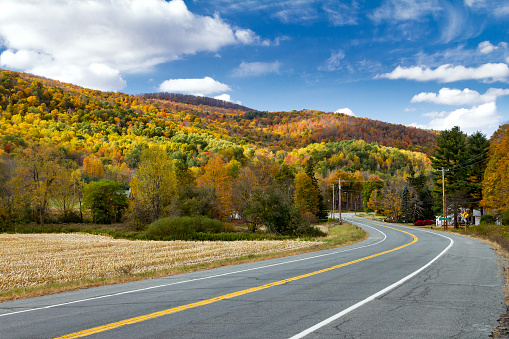
Drivers should never underestimate the risks associated with rural roads. Less traffic doesn't always mean fewer crash risks. Statewide statistics prove it.
According to the Maine Department of Transportation, approximately 163,320 crashes occurred statewide between 2013-2017. In contrast with the state's urban areas, rural roads had significantly more crashes:
- 91,474 crashes occurred on rural roads, 71,685 occurred on urban roads
- 571 fatal crashes occurred on rural roads, only 114 on urban roads
- 23,026 injurious crashes occurred on rural roads, 17,899 on urban roads
- 44 fatalities on rural roads involved pedestrians and bicyclists, and 69 involved motorcyclists
Risk factors for rural driving in Maine
Maine's rural roads can be more dangerous than urban roads for a number of reasons, including:
- Less lighting and poorer visibility
- Drivers more likely to encounter animals crossing the road
- Winding and curvy roads
- Fewer stop signs and traffic signals
- Some roads are poorly maintained
- Drivers are more likely to experience slippery road conditions
- Less traffic law enforcement
The feds look to improve rural transportation
According to Mass Transit, rural roads make up more than 70 percent of all U.S. roadways. Only about one in five Americans live in rural areas, but nearly half of all traffic fatalities occur on rural roads.
“Rural America, which has a disproportionately high rate of fatalities and is historically neglected, needs to have its transportation needs addressed,” said U.S. Secretary of Transportation Elaine L. Chao.
In order to address the dangers drivers face on rural roads, the U.S. Department of Transportation (USDOT), has launched a new initiative dubbed Rural Opportunities to Use Transportation for Economic Success (ROUTES). This initiative will be done in conjunction with USDOT's Transportation Infrastructure Finance and Innovation Act, which is intended to help fund rural infrastructure.
One key purpose of ROUTES is to identify transportation concerns in rural areas and coordinate efforts among several USDOT agencies in order to address them. ROUTES doesn't only seek to improve economic efficiency on rural roads in the U.S., but also to promote roadway safety and significantly reduce the rate of fatal rural crashes. USDOT will hold its first meeting regarding ROUTES this month.
Driving on rural roads in Maine requires motorists to be attentive, sober, and maintain a traveling speed that is safe and prudent for rural road conditions. If you or a loved one was hurt in a crash because another driver failed to do so, an experienced Maine car accident attorney at the Law Offices of Joe Bornstein would be glad to help.
Our legal team can investigate your crash, present the facts, and help you build a solid legal claim against the at-fault driver and their insurance company. The sooner you get started, the better. Contact us online today to learn more. The initial consultation is free and there is never a fee until we win your claim.



